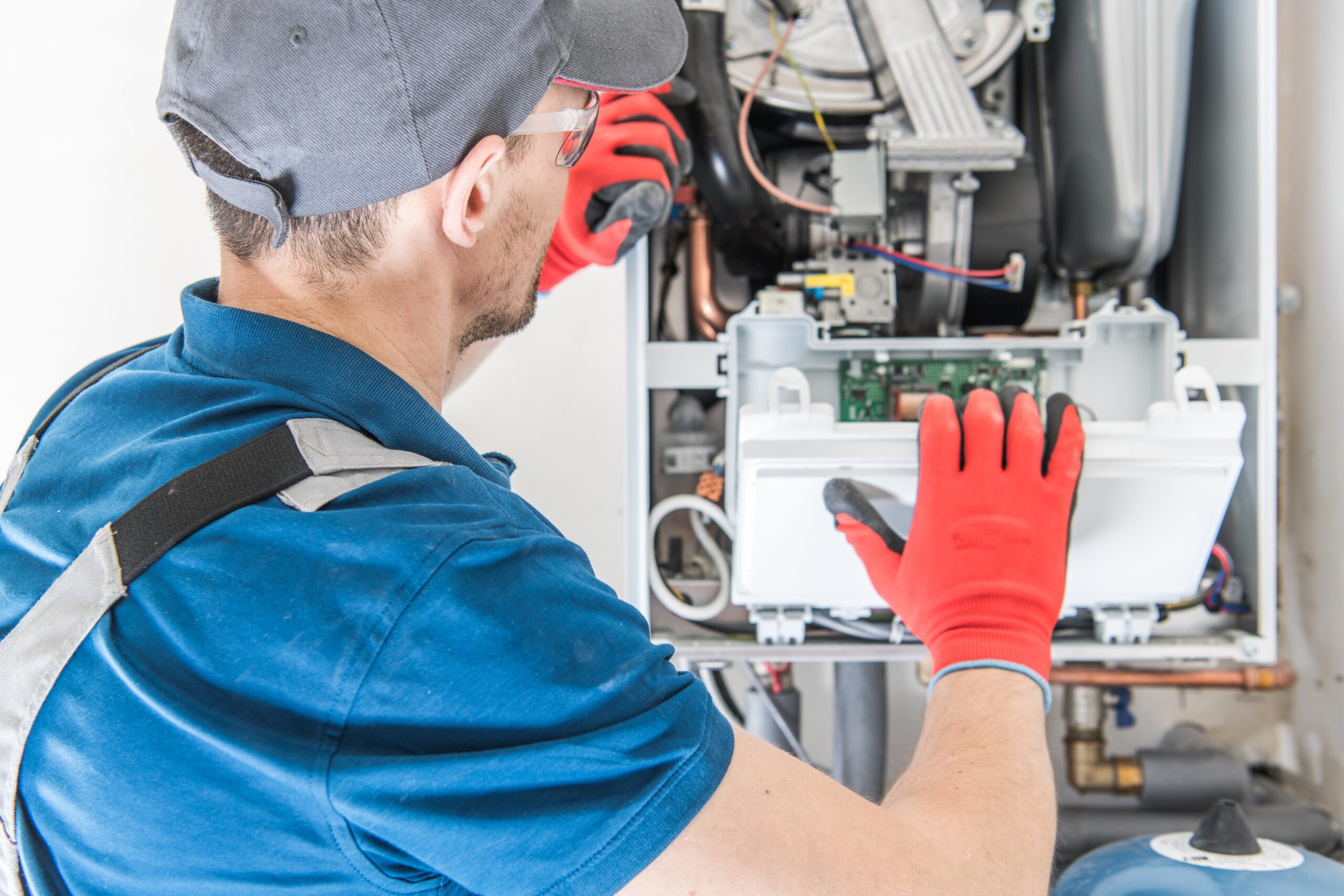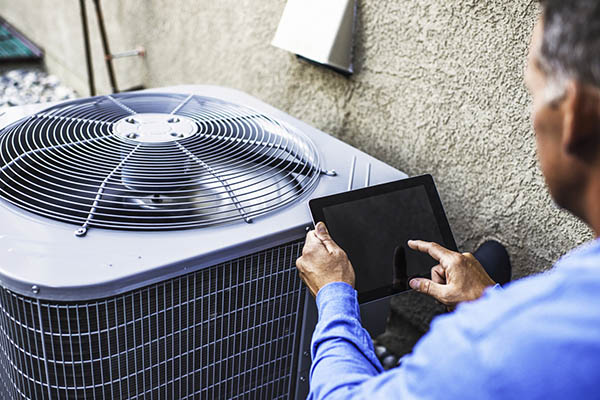Choosing Between a Heat Pump and Heater: Trick Considerations for Your Heating And Cooling Needs
When evaluating heating options for HVAC needs, the decision between a warmth pump and a heating system can be complicated. Each system provides distinctive advantages customized to specific climates and power performance goals. Comprehending these differences is vital for making an informed choice. Trick aspects such as installation prices and ecological impact better complicate the selection procedure. Which option truly lines up with one's convenience and sustainability preferences? The following areas will explore these considerations carefully.
Recognizing Heat Pumps: Exactly How They Work and Their Benefits
While many property owners take into consideration various heating alternatives, comprehending just how warm pumps feature and their advantages can substantially affect their decision. Warm pumps operate by transferring warmth instead of producing it. In the winter months, they extract warm from the outdoors air or ground and transfer it indoors, while in the summertime, they reverse this procedure, cooling the home by expelling warmth outside. This dual performance makes them flexible for year-round climate control.One of the main benefits of heatpump is their power effectiveness. They make use of significantly less power contrasted to typical home heating systems, potentially resulting in lower utility expenses (heat pump installation ooltewah tn). Additionally, heat pumps have a smaller carbon impact, making them an eco-friendly choice. They additionally need much less upkeep than traditional systems, adding to long-lasting expense financial savings. On the whole, recognizing the mechanics and benefits of heatpump can assist homeowners make informed choices concerning their home heating and cooling down requirements
Checking Out Heating Systems: Types, Procedure, and Advantages
Furnaces come in numerous kinds, consisting of gas, electrical, and oil designs, each with unique operational devices. Comprehending these distinctions is crucial, as they influence effectiveness and home heating efficiency. Furthermore, heaters use many advantages, such as regular warm outcome and reliability in cooler environments.
Kinds of Furnaces
Heating unit can differ significantly in layout and procedure, with heating systems being a popular choice amongst property owners. There are several kinds of heaters, each utilizing different gas resources and innovations. Gas heaters prevail, leveraging natural gas to produce warm efficiently. Electric heaters, on the other hand, use electric resistance to create warmth, often preferred for their straightforward installment. Oil heating systems, while less usual, work in locations with minimal gas access (heat pump replacement ooltewah tn). In addition, condensing heating systems make the most of energy efficiency by recycling and capturing exhaust gases. Each type runs via a system of heat exchangers and ductwork to disperse cozy air throughout a home. Understanding the differences in between these furnace types is necessary for educated HVAC choices
Advantages of Furnaces
For homeowners seeking reputable heat during chilly months, the benefits of heating systems are significant. Furnaces give constant home heating, making certain even temperature levels throughout the home. They are especially effective in extreme chilly, usually exceeding heatpump in frigid problems. Different kinds, consisting of gas, electrical, and oil heaters, supply flexibility to satisfy diverse requirements and preferences.Furnaces additionally tend to have lower first installment expenses contrasted to heatpump, making them a more accessible alternative for lots of. Their robust layout adds to a longer lifespan, with several devices lasting over 15 years with appropriate maintenance. Additionally, contemporary heating systems are commonly outfitted with innovative modern technology for boosted performance, which can bring about lowered power costs. In general, heating systems stay a reliable choice for efficient home heating.

Power Performance: Comparing Warm Pumps and Furnaces
When contrasting energy effectiveness in between heatpump and heaters, the Seasonal Energy Performance Proportion (SEER) plays an essential duty in determining performance. In addition, an operational cost evaluation reveals the long-lasting economic implications of each system. Comprehending these factors can direct home owners in making informed decisions regarding their home heating remedies.
Seasonal Power Effectiveness Ratio
Power efficiency plays a necessary role in the decision-making process between heatpump and heating systems, especially when considering the Seasonal Energy Effectiveness Proportion (SEER) This statistics actions the cooling performance of heatpump over a whole air conditioning season, supplying a standard way to evaluate efficiency. Greater SEER scores suggest higher power effectiveness, equating to lower energy usage and decreased utility costs. In comparison, heaters are typically analyzed using the Yearly Gas Application Effectiveness (AFUE) score, which shows home heating performance. When contrasting these 2 systems, property owners must prioritize SEER rankings for heat pumps, as they straight effect general energy cost savings and ecological sustainability. A detailed understanding of SEER can significantly influence the lasting fulfillment and cost-effectiveness of the selected heating and cooling service.
Operational Expense Analysis
Recognizing the functional costs linked with warm pumps and heaters is essential for house owners assessing their alternatives. Heatpump generally offer greater energy performance, converting electric power into warmth with minimal waste. This leads to reduced month-to-month utility costs, particularly in modest climates. Conversely, standard furnaces, particularly gas models, might have reduced in advance prices however can sustain higher operational expenses in time because of fuel costs and effectiveness ratings.Moreover, heatpump can work as both home heating and cooling down systems, potentially lowering the demand for different HVAC units. While initial investments for warm pumps might be greater, their long-term cost savings in energy performance can make them a more economical selection for many homes. Mindful evaluation of neighborhood energy rates is crucial to establish the finest choice.
Installment Costs: What to Expect for every Furnace
Setup costs for furnace can differ read what he said significantly in between heatpump and heaters, affecting home owners' choices. Warmth pumps generally have greater in advance setup expenses, typically ranging from $3,500 to $8,000, depending upon the system dimension and complexity of installment. This includes the exterior system, interior handling system, and required ductwork adjustments. Conversely, heating systems tend to have reduced initial costs, averaging between $2,500 and $6,000, which can be appealing for budget-conscious property owners. Setup expenses can raise if substantial ductwork is required.Moreover, the option of fuel kind for heaters-- all-natural gas, propane, or electrical-- official source can likewise impact installation prices. While heat pumps offer power effectiveness, their initial investment might prevent some buyers. Inevitably, reviewing setup prices along with long-lasting savings and effectiveness will help home owners in making informed decisions concerning their home heating systems.
Environment Factors To Consider: Which System Performs Much Better in Your Area
Exactly how do environment conditions affect the performance of furnace? The performance of warm pumps and furnaces can differ considerably depending on the regional environment. In moderate environments, heatpump stand out by efficiently moving warmth from the outside air, making them an energy-saving choice. Nonetheless, their effectiveness lessens in very cold temperatures, where they might battle to draw out adequate warmth. Conversely, furnaces, specifically gas designs, give consistent and dependable heat despite exterior conditions, making them more suitable in colder regions.In locations that experience milder wintertimes, heatpump can operate properly year-round, providing both heating & cooling. On the other hand, areas with harsh winters months typically take advantage of the toughness of heaters. Inevitably, understanding the local climate is necessary when making a decision between a more warm pump and a heating system, as it directly affects their operational efficiency and overall performance.
Upkeep Demands: Long-Term Take Care Of Heat Pumps vs. Furnaces
While both warmth pumps and heating systems need regular maintenance to assure peak performance, their specific demands and treatment routines vary significantly. Heating systems generally need much less constant attention, with annual evaluations sufficing to inspect for gas leaks, tidy filters, and assess overall performance. Their easier layout usually permits straightforward repairs.In contrast, warmth pumps demand semiannual maintenance due to their twin role in heating & cooling. This consists of cleaning coils, inspecting cooling agent levels, and ensuring that both the interior and exterior devices function at their ideal. Additionally, heatpump maintenance often involves even more intricate components, making specialist maintenance essential.Neglecting maintenance can cause reduced effectiveness and raised energy expenses for both systems. Ultimately, house owners ought to take into consideration these long-term treatment requirements when selecting between a heat pump and a furnace, as aggressive upkeep can prolong the lifespan and performance of either system significantly.
Ecological Effect: Selecting a Sustainable Heating Choice
The environmental impact of furnace is an important assessment for homeowners looking for sustainable alternatives. Heatpump are typically a lot more energy-efficient than typical furnaces, as they transfer heat as opposed to generate it, considerably minimizing carbon discharges. By making use of eco-friendly power resources, such as geothermal or air-source warmth pumps, homeowners can better minimize their environmental footprint.On the various other hand, gas heating systems send out greenhouse gases and add to air pollution, though they often offer greater warmth output. Developments in innovation have actually led to the growth of high-efficiency heating systems that lessen emissions.Ultimately, selecting a home heating system includes weighing efficiency versus environmental effect. House owners are encouraged to assess regional energy resources and incentives for eco-friendly systems, making sure an option that aligns with both personal comfort and environmental obligation. The choice impacts not just immediate convenience but additionally long-lasting sustainability and ecological health.
Often Asked Concerns
How Lengthy Do Heat Pumps and Furnaces Commonly Last?
The life expectancy of heat pumps normally ranges from 15 to 20 years, while heating systems can last in between 15 to 30 years. Normal maintenance substantially impacts their durability and efficiency in supplying home heating solutions.
Can I Use a Warmth Pump in Extremely Cold Climates?
Heatpump can run in incredibly chilly environments, however their performance decreases as temperature levels decline. In such problems, additional home heating resources might be necessary to maintain comfortable indoor temperature levels and guarantee peak performance.

What Is the Sound Level of Warm Pumps Versus Furnaces?
The sound levels of heatpump and furnaces differ significantly. Typically, heatpump run more silently than conventional furnaces, making them preferable for those conscious sound, while furnaces might create louder operational noises throughout home heating cycles.
Are Warm Pumps Suitable for Both Heating and Air conditioning?
Heatpump are undoubtedly appropriate for both heating and air conditioning (ductless mini splits). They operate by transferring warm, providing effective temperature control year-round, making them a flexible selection for home owners looking for an all-in-one heating and cooling option
What Size Heater Do I Required for My Home?
Identifying the appropriate dimension heater for a home calls for reviewing aspects such as square video, insulation quality, local environment, and the home's layout. Consulting an expert can ensure an exact evaluation and ideal comfort. Warm pumps commonly provide greater power performance, converting electrical power into warm with very little waste. In moderate climates, warmth pumps excel by effectively moving heat from the outside air, making them an energy-saving choice. Alternatively, furnaces, specifically gas designs, give regular and reputable warmth regardless of outdoor problems, making them preferable in chillier regions.In locations that experience milder wintertimes, heat pumps can operate successfully year-round, offering both home heating and cooling. Warm pumps are normally much more energy-efficient than standard heating systems, as they move warm instead than produce it, significantly minimizing carbon exhausts. By making use of eco-friendly power sources, such as air-source or geothermal warm pumps, house owners can additionally minimize their eco-friendly footprint.On the various other hand, natural gas furnaces send out greenhouse gases and add to air contamination, though they typically offer higher heat output.